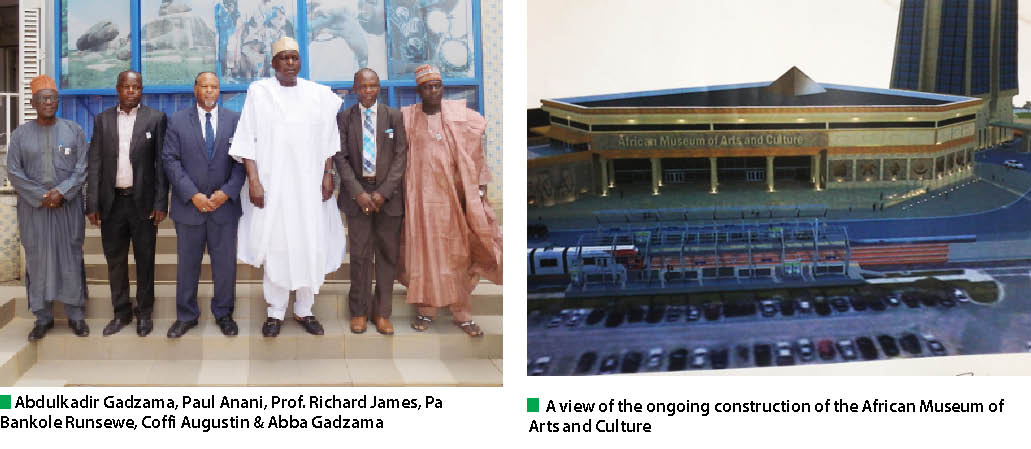When US-based foundation partners NCAC
A United States-based non-profit organisation, Foundation for the Advancement of African Descendants (FFAAD), recently held partnership talks with the National Council for Arts and Culture (NCAC) to fulfil its objectives. FFAAD’s responsibility is primarily to establish an African Museum of Arts and Culture (AMAC) in the US and render humanitarian assistance to disadvantaged people all over […]

When US-based foundation partners NCAC
A United States-based non-profit organisation, Foundation for the Advancement of African Descendants (FFAAD), recently held partnership talks with the National Council for Arts and Culture (NCAC) to fulfil its objectives. FFAAD’s responsibility is primarily to establish an African Museum of Arts and Culture (AMAC) in the US and render humanitarian assistance to disadvantaged people all over the world.
In a bid to achieve these, the board members of FFAAD, which included its Executive Director, Coffi Augustin Zinsou, Secretary Professor Richard James, Nigerian Representative Paul Anani, and a few others, met with NCAC.
Mr. Zinsou pointed out that the foundation’s desire is “to bring arts and artefacts for all to study the history of mankind.” The foundation’s ongoing project, in fulfilment of its primary objectives, is the building of AMAC, an educational institution whose programs are designed to enable visitors gain insight into their origin and the African continent through original artworks and artefacts it collects, displays and interprets.
Responding, the Director General of NCAC, Pa Bankole Runsewe said it was a welcome development and promised that Council will give the needed support. “A people without a culture is a dangerous ailment. One must find his or her roots,” he said, adding that efforts will be made to tie in the foundation’s activities with a Nigerian festival.
Professor James, a native of Norfolk, Virginia and a military veteran with vast experience in negotiating with various governments further explained that AMAC is a research museum where students can study mankind’s history, and this can only be achieved through partnerships. “There is a functioning library to help people study and we want to doo an exchange program with other museums. We cannot tell the story of Nigeria, only Nigerians can.” He said and revealed that within the museum Africans can get their DNA tested and know their origins. Also, there is a hotel with 340 rooms and 26 floors attached to the museum. Also, each floor of the museum is built to give different experiences of Africa.
Described as “unlike any museum in the world,” a train runs right in front of AMAC, thereby making in accessible. The museum is situated strategically to major cities in the country, including Washington DC. It has 26,000 Sq. feet of exhibition space located on the second floor, 4,000 Sq. feet library and research laboratory, four independent classrooms and separate children’s area, a theatre adjacent to a music gallery, a grand foyer connecting to a banquet area, tourism office and so on.
Aside from the museum in Norfolk, Virginia, the foundation plans to build another in Atlanta, Georgia where there are universities from the Southern parts of the state. “One can go to study at the museum in Atlanta, Georgia, and then from New York, Austin, Washington DC, Kentucky West Virginia, that area can use the museum in Norfolk to study and do research. It also promotes tourism, not only to the regions in the United States, but various regions and countries in the continent of Africa,” Professor James said.
Mr. Anani who coordinates the foundation’s activities as regards Nigeria said the organisation’s visit has been fruitful in that it has visited notable stakeholders within a short period and established relationships. These include the Nigerian Export Promotion Council, the Economic Community of West African States (ECOWAS) commission and other private museums and galleries such as Thought Pyramid Arts Centre in Abuja. “The objective is to collaborate with them. The African narrative, before now, has not been passed to the world in the right way by other countries and individuals. We want to say these stories the way they are,” he said.
